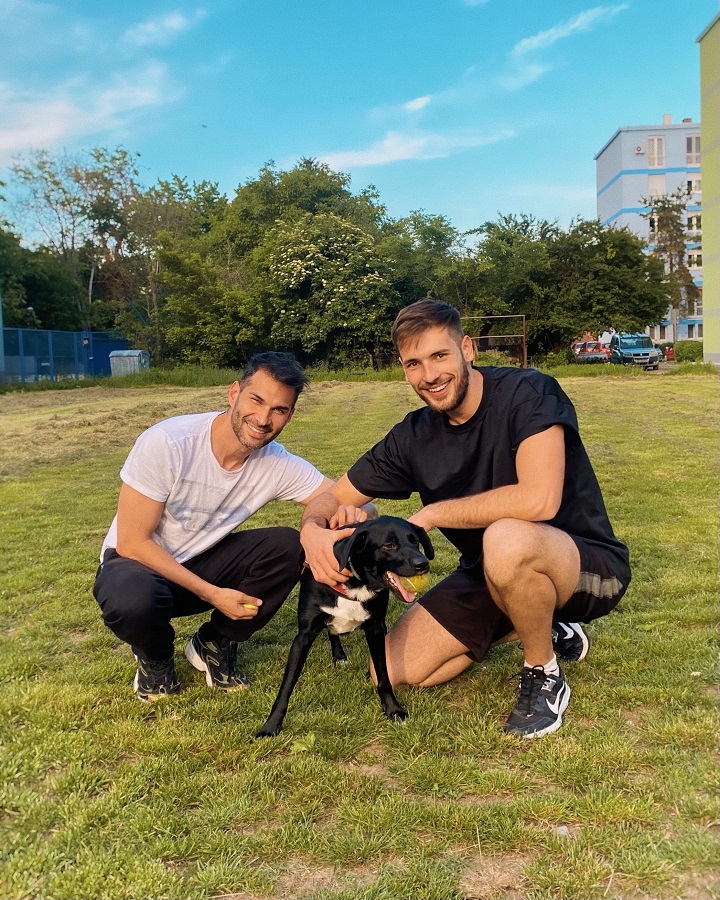HEP Investing in Supply of Electricity and Thermal Energy to Zagreb
September the 29th, 2022 - HEP is set to pour a massive 1.7 billion kuna into the production and supply of electricity and thermal energy for the City of Zagreb.
As Poslovni Dnevnik/PD VL native tim writes, despite the fact that it bears a significant burden on the implementation of Croatian Government measures to limit the growth of energy and energy prices, HEP is continuing to develop its production portfolio in the current difficult energy situation with the aim of increasing the degree of energy self-sufficiency across the Republic of Croatia. One such investment is currently being implemented in the heart of the City of Zagreb.
With the completion of the construction of the new combi-cogeneration block worth a massive 900 million kuna at Elektrana-toplana Zagreb (KKE EL-TO Zagreb), almost 200,000 residents of the western part of the capital will have a long-term supply of thermal energy, and commercial consumers will have a supply of industrial steam.
The reduction of all pollution
The plan is to put KKE EL-TO Zagreb, with an electric power of 150 MWe and a thermal power of 114 MWt, into trial operation in the first half of next year. The construction of the block is already at an advanced stage and 85 percent of the planned works have been completed so far. Complete production equipment has been installed, and the block is already connected to the 110 kilovolt network, the high-pressure gas pipeline, as well as to most connection points with the EL-TO Zagreb plant.
The expected average annual production of KKE EL-TO Zagreb is 675 GWh of electricity, 450 GWh of thermal energy for the central heating system of the City of Zagreb, and 160 GWh of industrial steam.
The new KKE EL-TO block will, thanks to Siemens' state-of-the-art combi-cogeneration technology, allow for the simultaneous production of electricity and thermal energy in the connection process, with a high degree of efficiency of 90 percent. It will achieve more than 25 percent of the primary energy savings of natural gas, which is extremely important as part of the European Union's overall efforts to reduce the bloc's dependence on manual gas as much and as quickly as possible.
In addition to all of the above, by replacing worn-out inefficient units at the location, the specific emissions of CO2 and pollutants in flue gases will also be significantly reduced. The turbines of the new block are designed for the possibility of subsequent use of alternative gas fuels, including hydrogen.
The new cogeneration block is being built by the Italian company FATA S.p.A., a member of the Danielli Group, with which the Agreement for the design, construction, procurement and installation of equipment and the Agreement on long-term maintenance of the power plant was signed. Croatian companies - Elektroprojekt, Inzenjering za naftu i gas and others - were all also hired to be engaged in various types of work.
A heat accumulator worth 100 million kuna was also constructed at the very same location, which will optimise the production of heat and electricity and help compensate for the increased consumption of heat energy. The heat accumulator will be put into operation during the upcoming heating season this year. The final works of the second season of the realisation of the revitalisation and modernisation project of one third, or 68.5 kilometers, of the hot water network of the City of Zagreb are also now firmly underway. The project is worth 700 million kuna in total was co-financed using EU funds.
The total value of the mentioned three projects with which HEP is working to increase the long-term security of the production and supply of electricity and thermal energy in the City of Zagreb amounts to approximately 1.7 billion kuna.
The construction of KKE EL-TO Zagreb is part of HEP's wider Renewable Scenario, which will increase production capacity by an additional 1,500 MW from 2018 to 2030, of which 700 MW will come from solar power plants and wind power plants, 570 MW will come from hydropower plants, and 230 MW will come in the form of high-efficiency cogenerations.
The long-term orientation towards renewable energy sources is illustrated by the fact that HEP is currently developing about 60 RES projects with a total power of about 1,400 MW and a value of around 11 billion kuna in total.
For more, make sure to check out our dedicated business section.
Is Croatian Luxury Nautical Tourism a Good Recipe for the Future?
September the 29th, 2022 - Is Croatian luxury nautical tourism the way forward and the key to the future for Croatian tourism? A conference held in Zadar recently discussed the matter further.
As Morski writes, a conference was held recently in the Dalmatian city of Zadar under the auspices of the Ministry of Maritime Affairs, Transport and Infrastructure, where the leaders of Croatian tourism and the nautical and maritime sector spoke about the development of Croatian luxury nautical tourism, more specifically within Zadar County.
Nautical tourism is one of the backbones of tourism in the Croatian Adriatic, we saw all its advantages during the global coronavirus pandemic when it led the entire tourism sector towards much needed recovery. From its very beginnings until this very day, it has been continuously developing and growing, and one of the fastest growing and most powerful segments is certainly Croatian luxury nautical tourism. This type of tourism implies significant investments, an extremely high level of offer and service, and it also brings guests with higher paying power, and these were the topics of the aforementiond Zadar-based conference.
''Ports are the gateway to the world, the driver of economic development and an important pillar of transport connectivity, their contribution to nautical industry, which continuously records better results, is unmissable. Our national chain of marinas - ACI, which manages 22 marinas from Umag all the way down to Dubrovnik, knows this better than anyone, and the construction of the 23rd marina in Porto Baros in the City of Rijeka is also currently being prepared.
ACI manages the Simuni marina on the island of Pag in Zadar County. The amount that ACI invested in its marinas, just last year alone, stands at almost 44 million kuna. It is precisely these continuous investments in infrastructure, but also in the entire offer, along with the coastline that Croatia has, that give these excellent results and place nautical tourism in the position of one of the leading sectors in the country's overall tourism results,'' said Minister of Maritime Affaits, Transport and Infrastructure, Oleg Butkovic.
County Prefect Bozidar Longin rated the Zadar coastline as one of the most important and valuable resources available to the county. However, he also drew attention to sustainability, namely that the coast is a sensitive ecosystem that we must protect and preserve, while Mayor Branko Dukic pointed out that the proper preconditions should be created and the local population should be considered more than ever, given the large number of guests and crowds during the height of the summer tourist season.
Zadar County is an ideal destination for the development of Croatian luxury nautical tourism. Moreover, the president of the ACI Management Board, Kristijan Pavic, said that behind every luxury marina there must also lie a destination that is attractive to a clientele with higher paying power and greater demands, and Zadar is certainly one of those destinations. There can and should be a luxury marina located in Zadar, because the offer in the city and its surroundings is complementary to this type of marina, and vice versa.
The development of nautical tourism in Croatia over more recent years has defined a new direction in which we can head, and all those present agreed to continue to direct their proverbial sails in that direction, towards nautical tourism at an even higher level, remaining in synergy with the other facilities, content and tourist offer that the city already has.
For more, make sure to check out our dedicated travel section.
Brijuni Islands Still Busy - Excursions Booked Throughout October
September the 29th, 2022 - The gorgeous Brijuni islands which are also one of Croatia's several stunning national parks have had an excellent season, with excursions still being very well booked throughout the month of October.
As Morski writes, the beautiful Brijuni islands have never had a better main summer season and post-season. All excursions for this particular national park are sold out, and the boats heading there from the mainland are all full. Special events are being prepared for the month of October, which will further attract visitors to the Brijuni islands and promote their astonishing beauty.
The location in Fazana on the Istrian mainland from which you can hop aboard a vessel to the Brijuni islands is always crowded, and people are having to wait in lines. Every day, up to a thousand excursionists come by boat. During the four-hour guided tour, visitors get better acquainted with history of these unusual islands, see their cultural monuments, and get to spend time in their natural beauty.
Organised groups of visitors are making frequent returns to the Brijuni islands, and every single day there are many people who want to visit the National Park even as the season winds down.
''It would be good to make a reservation a few days earlier, especially for weekends when we have a larger number of visitors,'' pointed out Marija Stokovic, head of the Department for Visiting, Sport and Recreation of the Brijuni National Park.
''This year, we managed to reach a 40 to 45 percent increase in the number of visitors, which essentially means that we managed to reach 240 visitors from 180,000 visitors, which is the park's maximum record,'' said Marno Milotic, the director of NP Brijuni. In order to extend the season, NP Brijuni is preparing numerous recreational and sporting events, such as open days and a family golf weekend.
''Throughout the year, we hold various events through which we try to educate our visitors, work on the sustainability of tourism and promote the interesting parts of this national park,'' pointed out Reanna Bajkovic Relic, a spokeswoman for NP Brijuni. Autumn will therefore be a very active one on the Brijuni islands, and many events and excursions will be available at affordable prices, reports HRT.
For more, make sure to check out our dedicated travel section.
Croatian Position on 2022 Digital Competitiveness Ranking Improved
September the 29th, 2022 - The Croatian position on this year's digital competitiveness ranking has improved somewhat, but it is still lagging quite significantly behind many countries.
As Poslovni Dnevnik writes, the main finding of the IMD World Digital Competitiveness Ranking 2022 published by the World Competitiveness Centre (WCC) places Denmark in first place, the USA in second place, and the Republic o Croatia in 43rd place out of 63 observed countries.
"Governments and the private sector must invest in all areas – in talent, training and education, scientific concentration and research and development – to protect their digital infrastructure from cyber-attacks and provide competitive e-government services. These are key steps towards the digital creation of a competitive economy," is the conclusion of this report.
"We're pleased with this result, which shows an increase of twelve places on the World Ranking of Digital Competitiveness, the highest that the Croatian position has ever been in. Growth was achieved across all three areas: knowledge, technology and readiness for the future. The ranking itself points to areas where we still need to work, such as knowledge transfer (59th) or the ability to attract foreign experts (59th), but also those where we show excellent results, such as the ratio of the number of students to professors (7th) or investments in telecommunications (5.) This is a recognition of the work we've engaged in so far, but also an obligation to continue with efforts that will lead us to an even higher place on this ranking, in order to ensure a competitive advantage for the Croatian economy and the improvement of society as a whole," pointed out Acting President of the National Competitiveness Council, Ph.D. Ivan Misetic.
The annual ranking quantified the capacity of 63 global economies to adopt and explore new digital technologies and use them to transform government practices, business models and society. It does this by categorising 54 different criteria – a mix of external hard data (two-thirds of the total) and IMD's Executive Opinion Survey (one-third) – into three broad groups: a) future readiness, b) knowledge and c) and technology.
"This ranking of digital competitiveness describes the importance of national factors in explaining the digital transformation of companies and the adoption of digital practices by the general public. Digitally successful countries emerge from a combination of digital talent, digital regulation, data governance, digitalisation attitudes and capital availability,” said Arturo Bris, Director of the WCC.
This year's results shed new light on those factors that make it possible to strengthen the capacity of both governments and the private sector to protect digital infrastructure from cyberattacks, according to experts. This kind of action is of key importance for the adoption and spread of digital technology, and the hope is that the Croatian position on this list will only continue to get higher and higher.
The full report is available here.
For more, make sure to check out our dedicated politics section.
Croatian Returnee Reflections: Marko Petric, from Berlin to Zagreb
September 29, 2022 - Whisper it quietly, but more and more people are relocating to Croatia from the diaspora. In a new TCN series, we meet them to find out how they are faring and what advice they have for others thinking of making the switch. Next up is Marko Petric, who moved from Berlin to Zagreb.
I was born in 1993 in Split, Croatia. I am the oldest of three children born to our mom, a Croatian language professor, and our dad, a telecommunications engineer. My siblings and I grew up in lovely Posusje, in the West Herzegovina region of Bosnia-Herzegovina.
Thanks to a generous merit-based scholarship, in 2009, I moved away from home to finish my two last years of high school at the United World College in Mostar (UWCiM), where I lived and went to class with kids from more than 40 other countries.
Then, I got a full-ride scholarship to study at a liberal arts college in Maryland (Washington D.C. Metro Area). I was pretty involved in campus life there, having served as Class President and Model United Nations president, which in turn led to an opportunity to speak at the United Nations General Assembly Hall in New York City at some point.
After four transformative years, I graduated with a degree in Political Science and French and started working in PR and marketing as part of the largest network of nonprofits in the U.S., fighting for education, health care, and financial stability. I lived in the States for almost seven years. In April 2017, I packed my whole life in a suitcase and left. Admittedly, I was heartbroken about it, but the uprooting taught me an important lesson — one of letting go.
After that, determined never to return to my hometown or Croatia, I ended up in Bergen. In case you’re not familiar, Bergen is Norway’s second-largest city, nestled between seven mountains on the west coast of this stunningly beautiful country. It’s also one of the rainiest cities in the world, and as you can imagine, this Mediterranean boy was not having it. I left after about eight months.
On my way out, I stopped by Berlin, Germany, for what was supposed to be a two-day trip. As I was there, I realized Berlin had a thriving startup scene. I had already been looking to break into the software industry, so naturally, I found myself wondering: "Why not move here?" Everything happened kind of quickly — almost accidentally, even — but I did end up living there for two years. I loved every minute of it.

1. You made the switch to Croatia. Tell us a little about the decision process and how long it took for you to get on the plane.
Yes, eventually, I did the exact thing I swore I'd never do: I moved to Zagreb.
It's funny how life can take you on unexpected journeys. Although I was drawn to return closer to home, there was a part of me that felt reluctant. It felt like admitting defeat in some game I was playing with myself — subconsciously, at least — and I initially refused to consider it as a sensible option.
But after months of consideration, I realized that moving to Zagreb could be just the thing I needed to grow both personally and professionally. Being closer to the beautiful Adriatic and my parents in Herzegovina was a major advantage. And as a digital marketing professional, I knew I could continue my work as long as there was a stable internet connection, which there is.
It was a difficult decision, but sometimes we have to take a leap of faith to find our true path. This felt like one of those moments.

2. What did your family and community back home think of your decision at the time?
I got a mix of reactions. All my friends were a bit perplexed, but they said: “Happy if you’re happy.” My parents always supported me in all my decisions, and they were elated that I was moving closer to home. That was for sure. However, I could tell they were having some reservations because they knew I had worked my whole life to build a better life elsewhere. Of all three kids, they always considered me the least likely to move to Croatia. So the irony was evident to us all: Both of my siblings were already living abroad when I announced I would be moving to Zagreb. The lesson I learned from this move was to never say never.
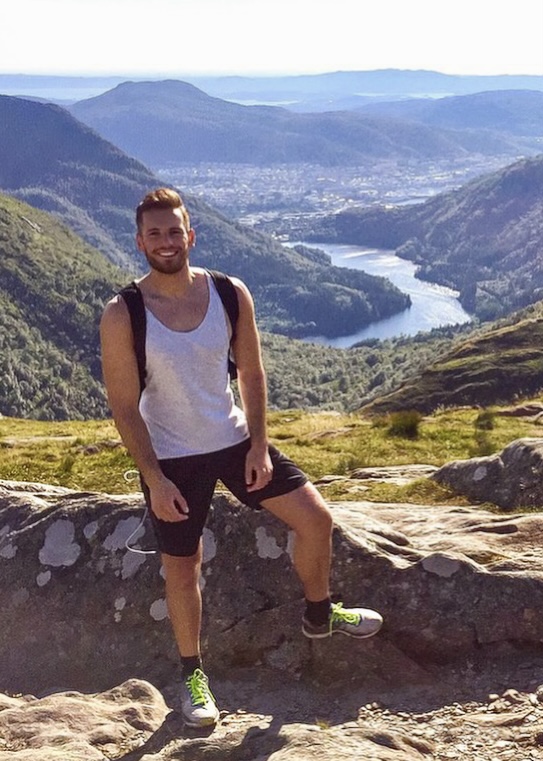
3. Where did you get your information about the realities of Croatia prior to coming?
At that point, I stopped keeping track of local news in Croatia. I knew HDZ was in power, Andrej Plenkovic was the serving PM, and there were two weekly flights from Zagreb to Berlin (in case I wanted to run back). But beyond that, I didn’t know much because I had never lived in Croatia for the long haul before.
So in many ways, it felt like moving to a foreign country. After almost a decade spent across the U.S., Norway, and Germany during my formative years, moving back to the Balkans required me to reacclimate to the local ways of being.
I was lucky to know some people here already, so I relied heavily on friends to give me the information I needed ahead and after our move. Of course, I also researched information online across many sources, including TCN.

4. What were you most nervous about making the switch? What was your biggest fear, and what was the reality of what you found?
Job opportunities and economic circumstances at large were my two main concerns. Considering the lower standard of living in Croatia relative to EU members in the west and the north, I knew my best shot was freelancing. As 2020 rolled around, amid the pandemic and a global shift to a new, digital reality, I finally decided to make my side gig my full-time gig. And that is the story of how MP Creative Services, my full-service digital marketing business, was (officially) born.
Currently, MP Creative Services is on the back burner, as I am focusing on a role I took at Five, an Endava company. As a growth marketing specialist there, I work at the intersection of marketing, behavioral economics, data analysis, and product design to drive mobile app growth for some cool U.S. brands.
5. Think back to the time before you arrived. What were your perceptions about Croatia, and how were they different from the reality you encountered?
"Hercegovac u Zagrebu" was not a cliche I planned on embodying at any point in my life, but I became precisely that when I moved here. The metamorphosis implied developing specific coping mechanisms for when I’m just going about my business and someone starts talking crap about Hercegovci. The funny thing is, when I was younger, I tried to distance myself from that part of my identity as much as possible (probably because of its negative connotation). But as I grew older, I embraced it, and now I find myself defending it against libelous Purgeri — generally, in a playful, joking context.
As an openly gay man, my other big concern was that I did not want to go back into the closet and start denying that part of my identity again — one that I worked so hard on embracing in the first place.
Croatia is a deeply conservative society, with traditional Catholic values at the core of the nation's DNA. I was worried that I would struggle with that, but I decided never to reduce myself or pretend to be someone else for the comfort of others. I needed to be brave and true to myself at all times. I understood that, with every interaction, I had the opportunity to dispel misconceptions and build dialogue — hopefully, seeing a change of heart in someone every once in a while. This matters to me because it's not just about me; it's bigger than that.
To my surprise, I’ve experienced more kindness during my time here than I ever expected from the people of Zagreb and Croatia. It was to the point where I felt like the closed-minded one because of how stubborn I was in the generalizations I made about an entire population. Of course, this does not mean other gay boys/men and girls/women across the country are not suffering injustice and inequality daily. But based on my experiences with people whose paths crossed mine, I am more hopeful about the kind of society we can build for future generations than I have ever been in the past.
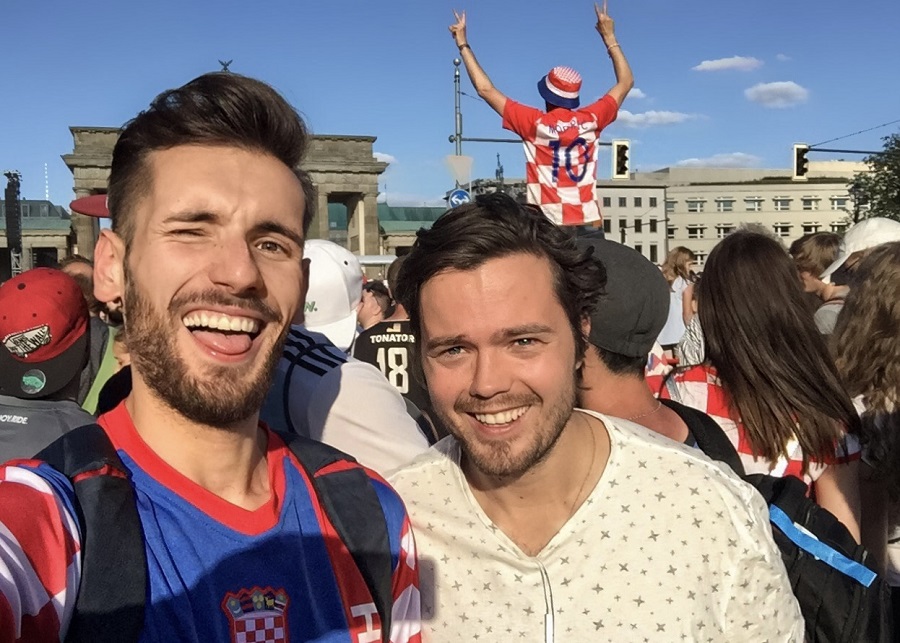
6. You are still here, so obviously, the pros outweigh the cons. Tell us about some of the things that you love about being in Croatia, as well as some of the things you don't like.
Well, I have been here for almost three years now. And I would be lying if I said I have fallen in love with living in Zagreb. I am still working on it. On the one hand, I have fallen out of love with Croatia because — now that I live here — I have stopped idealizing it. On the other hand, I have also fallen in love with it because of the people who live here, the passion and dedication I see them put into the things they do, and the great stuff they bring into the world when they put their minds to it.
Sure, many aspects of living in Croatia suck. There’s no sugarcoating it. Food, rent, and utilities are too damn expensive, yet salaries remain below the EU standard for most. Things are about to get even worse with inflation raging and the winter coming. Working families and seniors are affected the most. Speaking of seniors, too many retired people have no choice but to supplement their income by digging through the trash, looking for discarded bottles to trade in for a couple of kunas. Such is the fate of the average worker retiring in Croatia today.
We’re still using Tito's Communist regime and the Homeland War that ensued as a scapegoat for everything wrong in the country today — almost thirty years after the war ended. In the meantime, corruption remains widespread, killing the system from the inside, like Stage 4 cancer. In terms of rights, many have none. Women's rights are still an issue, as are gay rights, ethnic minority rights, and the rights of immigrants arriving on the border. The list goes on… But keeping things in perspective, no country is perfect. In my book, it comes down to finding someplace worth fighting for, someplace worth calling home. I suppose I found that ‘something’ here.
In 2003, Berlin Mayor Klaus Wowereit famously called his city “poor but sexy”. Berlin is no longer poor, so I will take the liberty of conferring this title upon Zagreb. Poor but sexy is a great way of describing it because its charm is indeed in the rundown Austro-Hungarian facades, colorful street art, trendy food spots, and hipsters hanging in front of the National Theater.
Don’t forget about the balmy summers, either! The city clears out, and you can enjoy parks, forests, and Jarun Lake all to yourself. And as the summer slowly fades away, all the artists, creators, innovators, and other eccentrics who call Zagreb home return. The city comes alive again, almost overnight. Before you know it, it’s time for Advent — Christmas lights, ice skating, mulled wine, and friends.
Okay, fine! I do like Zagreb.
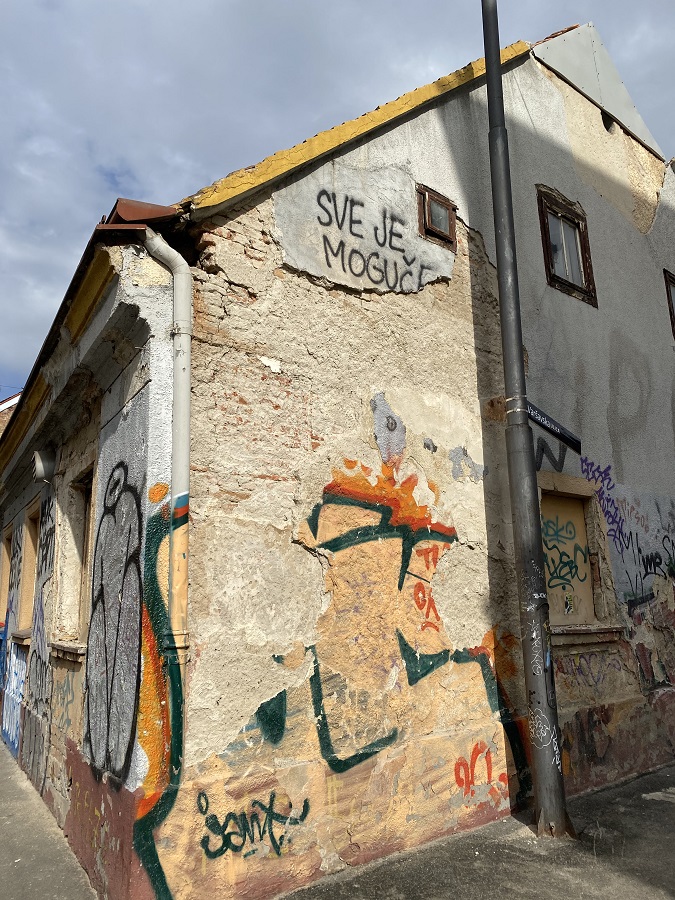
7. What advice do you have for others thinking about making a move from the diaspora?
Just do it!
That would be my advice to anyone considering moving to (almost) any country. I think embracing the unknown, leaping into uncharted territory, and taking yourself out of your comfort zone is the only way to grow. And trust me when I say: Croatia will give you a run for your money.
Worst-case scenario: Even if you end up hating it, you always have the option of moving back home. The country you, your parents, or your ancestors went to in search of a better life. Perhaps they found it. Perhaps not. In any case, we all get to be the authors of our own stories. The world is your oyster. (And serendipitously, Croatia is one of the best places on the planet to sample this decadent treat. If this is not a sign…)
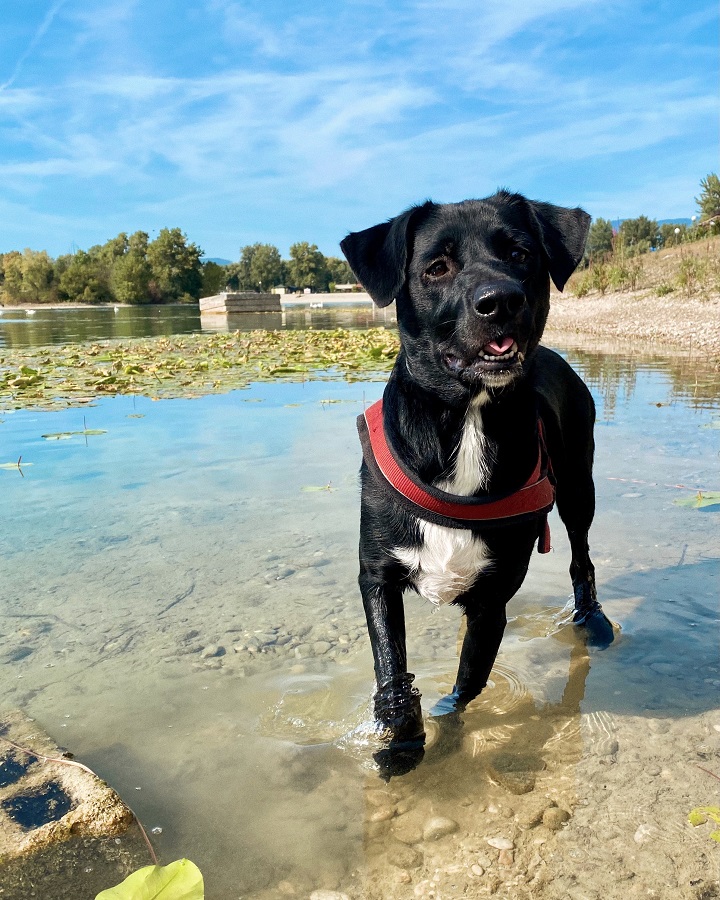
8. How do you think Croatia can better assist those who are looking to return to the Homeland?
Oh, man, where do I even start…
Generally, I think our government should actively be looking into ways to make it simpler for people to come here and contribute to our society, whether it’s by bringing know-how or investments, opening a business, starting (or moving) a family here, or any other number of ways in which they could enrich the fabric of our society.
Tax cuts for the first year might be a reasonable idea to explore. Programs assisting families moving with kids with needs such as daycare, school, medical care, and so on. And in the post-pandemic world, offering more online resources across a spectrum of public services is paramount. This opens up the door to opportunities to work closely with the private sector, especially tech companies that have the know-how to bring forward-looking, ambitious ideas to life.
Andrej Plenkovic’s government, as profoundly flawed as it may be, seems to understand this on some level. The digital nomad visa project is a great example: While ‘forward-looking’ is not a word I’d use to describe much else of what goes on in Croatia’s politics these days, this truly is the kind of rare political project that can have a deep and lasting impact on the country’s growth trajectory. Though the effort was spearheaded by the Dutch-born entrepreneur Jan de Jong (arguably a greater patriot than most native Croats), the government still handled the legal and logistical prerequisites with unprecedented expediency. I bet no other political project was executed that fast in the country’s modern history.
Then, there’s also the question of the booming software industry, expected to surpass the behemoth that is tourism in a few years in terms of value-add GDP. Yet government policies had very little to do with that success. Croatian software companies are achieving truly remarkable results on the global scale with no outside help. As a country, we should be making it easier for them to attract talent and investments. By designating the software industry as a strategic, thereby empowering promising startups, we empower the Croatian economy, making it more resilient to pandemics, wars, inflations, and other capitalist maladies.
California is fine and well, but it’s possible to build a multi-million-dollar company in Croatia too. It’s been done several times over the past 10 years, and there’s always room for more innovation. Also, we’re lucky to have many in the Croatian diaspora communities around the world in our corner. Many passionate people out there have the expertise, the motivation, and the cash to help build Croatia’s “silicone dream”.
Little geniuses are sitting in schools across the country right now. With the right support, in the future, these kids might find solutions to some of the world’s most pressing issues — maybe even save the world. This is why I hope we divert more resources to education, bringing our schools and universities up to par with those in Finland and other countries pioneering new, innovative education models. We have to make sure we start introducing kids to technology as early as possible, giving them the tools they need to learn new skills. That’s how we attract more families looking for a safe place to raise their little geniuses.
****
Thanks, Marko!
You can follow more stories in the Croatian Returnee Reflections series in our dedicated TCN section.
Would you like your returnee story - positive or negative - to be featured in this series? Contact This email address is being protected from spambots. You need JavaScript enabled to view it. Subject Returnee.
****
What is it like to live in Croatia? An expat for 20 years, you can follow my series, 20 Ways Croatia Changed Me in 20 Years, starting at the beginning - Business and Dalmatia.
Follow Paul Bradbury on LinkedIn.
Croatia, a Survival Kit for Foreigners will be out by Christmas. If you would like to reserve a copy, email This email address is being protected from spambots. You need JavaScript enabled to view it. Subject 20 Years Book
Discover the Croatian Danube: An Idyllic Weekend in Dalj
September 30, 2022 - From the canals of Aljmaš; and the slopes of Erdut, after having enjoyed steaming hot fish stew from a hanging pot and wine from the largest barrel in the world, continue your journey east, and you will shortly arrive in Dalj. Another hidden gem of Slavonia and Croatia. A place where the Danube is just the right temperature in the summer, where the fruits taste sweet, and where the stars aligned to make it the birthplace of one of the greats.
The first signs of life in Dalj date back to the Bronze Age, around 1350 BC. One of its first names, from the Roman times, was Teutoburgium, and its significance was that it was positioned on one of the four main routes towards Dalmatia. Just like the rest of eastern Croatia, Dalj underwent changes in power and demography, resulting in a rich heritage mix of Catholic, Orthodox Christian, and Ottoman influences. The Christian religions remained and are both still an essential part of Dalj’s culture. The silhouette of the village is adorned with Catholic and Orthodox churches, and the church of St. Demetrius is the largest cathedral of the Serbian Orthodox Church in Croatia. Right next to it, an inviting palace with a garden full of flowers – the summer residence of the church’s patriarchs found its home. Naturally, its location is prime, with only a green park between it and the Danube.
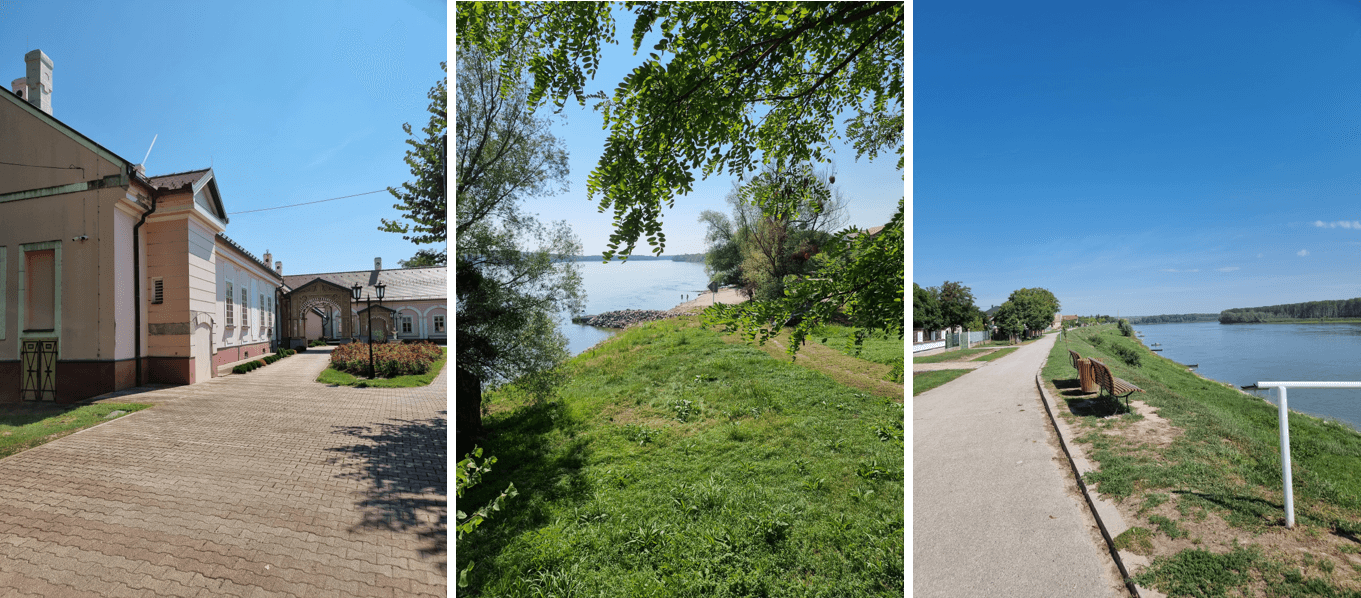
Author
The Danube, of course, is what life revolves around. The geography of the village has remained such that people from every part of the village can reach the riverbank quickly and straightforwardly. They go there to walk, relax, swim, fish, or enjoy nature. In the summer, the Dalj beach is the absolute centre of all activity. Gathering from all parts of the village, families, and friends either walk, swim, or let the Danube take their boats there. Once they’ve reached the sand and the shade of the banks, the party can start. Whether beach volleyball, music, drinks, or barbecue, something happens daily to keep everybody’s minds off the summer heat.
Just like Aljmaš and Erdut, Dalj is an excellent stop on the Danube not only for refreshment and activities but for wine and food. The local gastronomy shines bright in Stari Mlin, a restaurant serving the best of Slavonia daily, with live music on weekends, occasional events, and special celebrations. It is a trendy venue for team buildings as well. There is plenty of room both indoors and on their summer terrace.
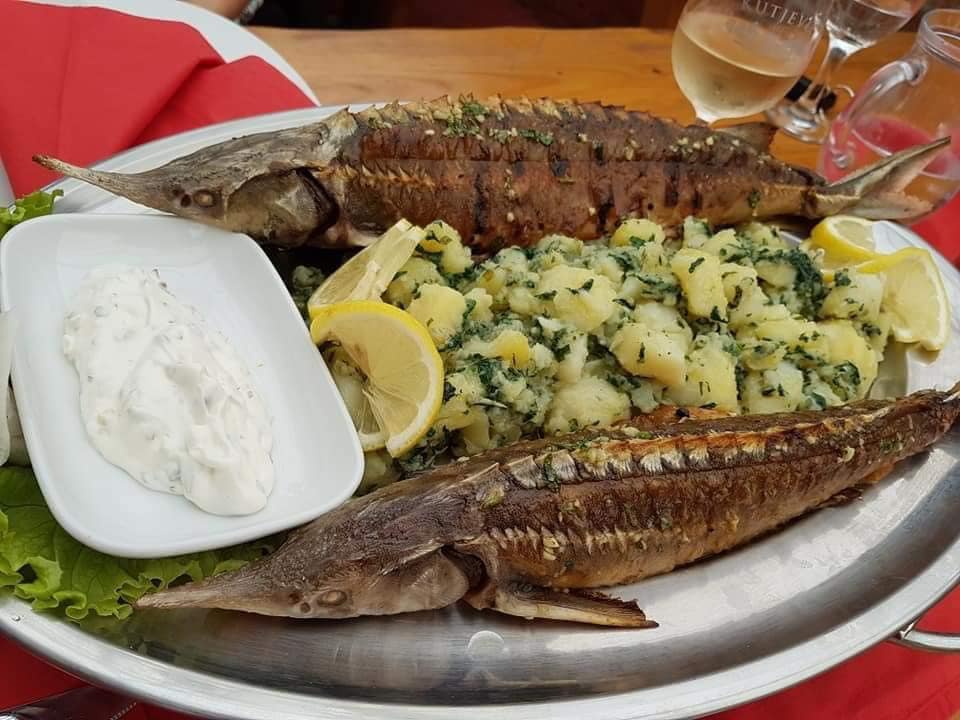
Restoran Stari Mlin
The menu celebrates the Danube, with carp, catfish, and perch taking centre stage and plenty of meat dishes in supporting roles. We recommend calling in advance to try out their famous traditional catfish stew or fire-roasted carp. Even if you’re not feeling hungry, sit down for dessert or coffee and enjoy the view and the Danube breeze.
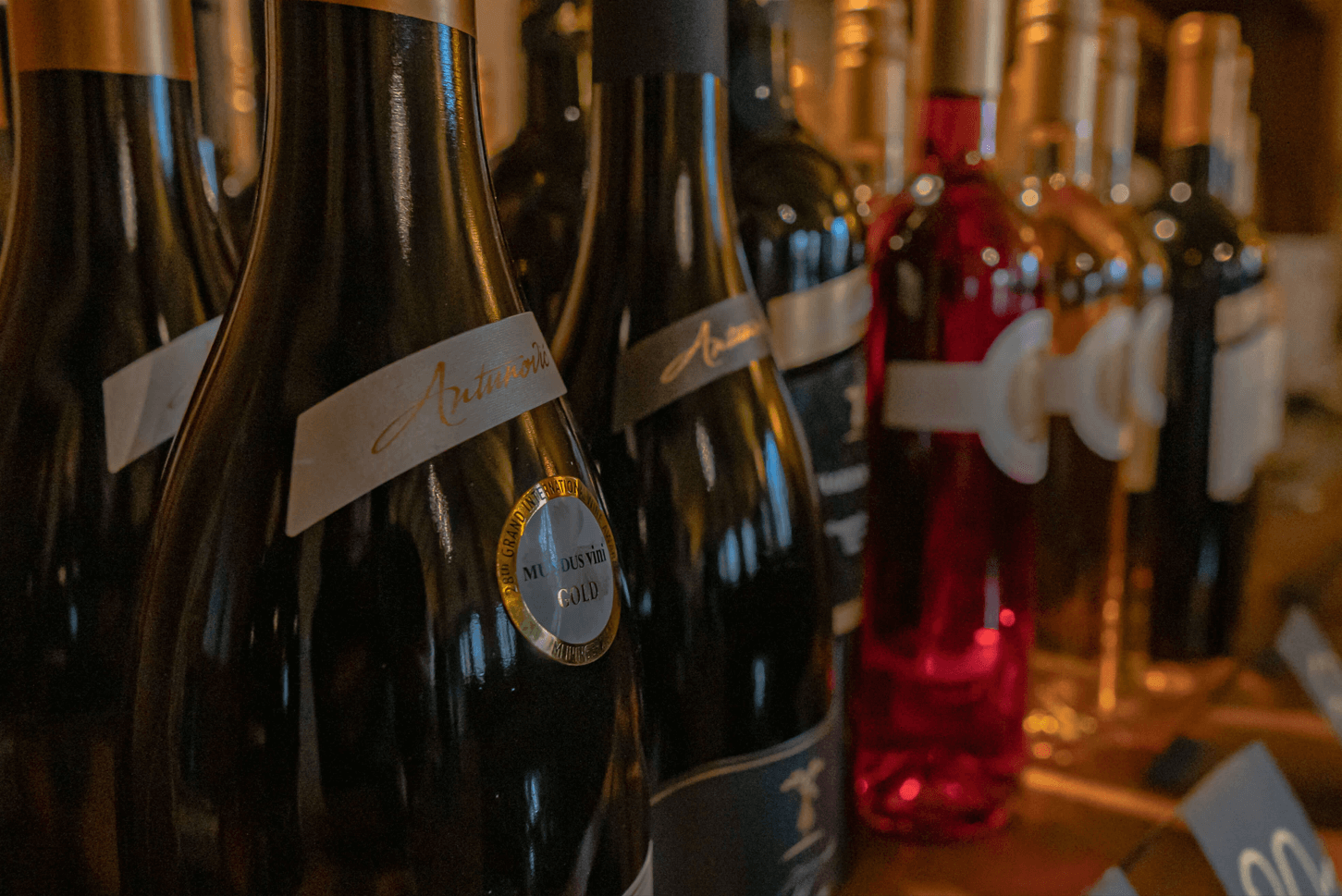
Steve Tsentserensky
After a delicious filling meal, it would be a mistake not to let your heart take you straight to wine. A special surprise awaits in Dalj. Head over to the Antunović winery, the first female-owned and established Croatian winery, and find out why it became one of the most awarded wineries in Croatia.
If you’re looking for a specific reason to visit Dalj, where you can experience the lovely autumn atmosphere while learning about the local traditions, try the Fair of Old Crafts and Customs and Gužvara Fest. Use the chance to try out traditional tools and witness true craftsmanship or taste some of the local delicacies. The emphasis lies on Gužvara – a traditional yeast dough dessert filled with ground walnuts or poppy seeds. It is a must-serve at Slavonian feasts and gatherings. Saturday, the 8th of October, is the day.
Tradition is an integral part of life in Croatian villages. Following suit, the big days in Dalj include kirbaj (also known as kirvaj), Crkveni God for the Catholic population, and Krsna Slava for Orthodox families. Both events celebrate the village's and family patron saints, respectively.
Finally, let us not forget to mention Dalj's greatest - Milutin Milanković. This mind of the future, an influential mathematician, physicist, and astronomer, was born in Dalj, went on to travel Europe for his studies and work, but came to some of his most important conclusions right in his backyard, inspired by the Danube and a big pine tree, which still stands there 143 years later. Stay tuned to find out more about, possibly, Croatia's most underrated museum.
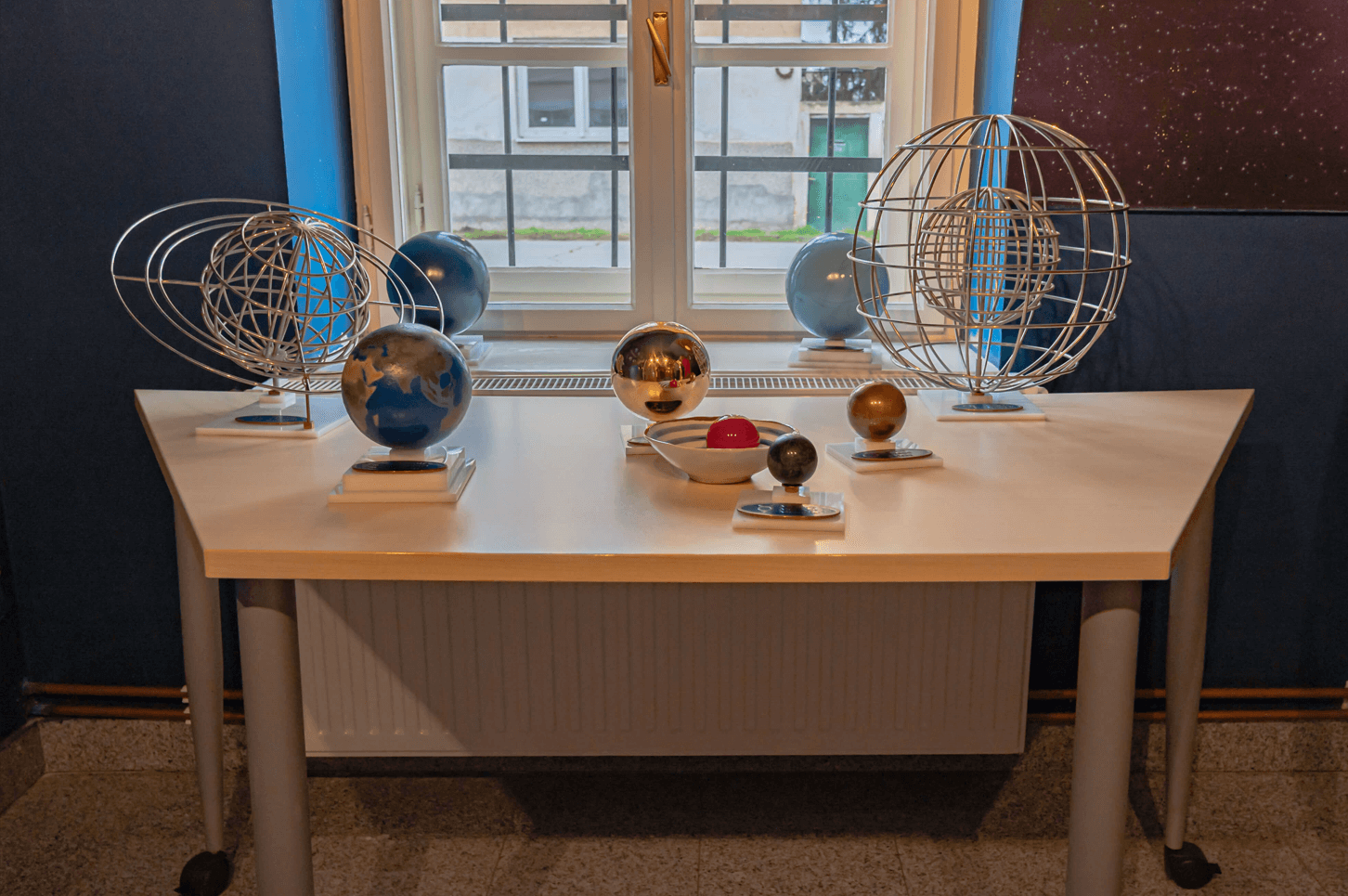
Steve Tsentserensky
Special thanks to Jovana, the Erdut Municipality Tourist Board directorErdut Municipality Tourist Board, and the perfect host for our day in Dalj.
How good is your knowledge of eastern Croatia? Take the CROMADS test above - how many places do you recognise?
For more, make sure to check out our dedicated Travel section.
CWN/MHŽ Opens Nominations for the 2023 Croatian Women of Influence Awards
September 28, 2022 – The Croatian Women’s NetworkTM/Mreža Hrvatskih Žena is calling for nominations for its coveted Croatian Women of Influence Awards and Future Leaders Awards, which will be conferred at a gala event on International Women’s Day Wednesday, March 8th, 2023 in Zagreb, Republic of Croatia
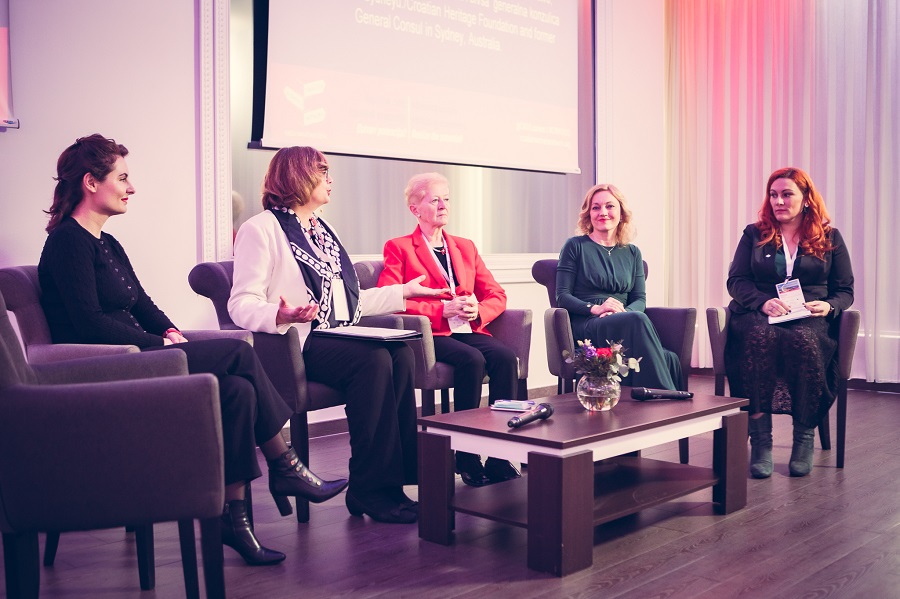
Recognizing leadership, innovation, and community impact
“Since 2016, CWN/MHŽ has been recognizing and celebrating Croatian women the world over with the only award of its kind. We are thrilled to be returning to Zagreb following a two-year hiatus due to pandemic restrictions,” noted Caroline Spivak, founder of Croatian Women’s NetworkTM/Mreža Hrvatskih Žena. “It is a privilege to be able to shine a light on the most inspiring and influential Croatian women and to celebrate their achievements.”
The Croatian Women of Influence Award recognizes the leadership, innovation, and community impact of Croatian women. A companion Future Leaders award recognizes enterprising young women between the ages of 16 to 21 who demonstrate extraordinary talent and leadership. “Supporting the success of young and emerging leaders is an area where we have the most significant opportunity to champion future generations of successful Croatian women,” said Spivak.

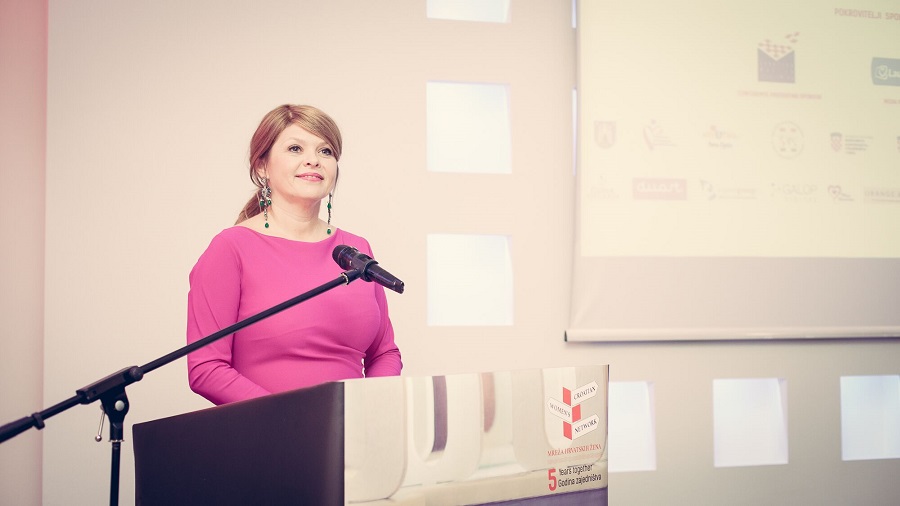
Nominations can be submitted by visiting www.crotianwomensnetwork.org and will be accepted up until October 23, 2022.
Awards will be presented at a gala event celebrating International Women’s Day, following CWN/MHŽ’s signature conference: Advancing Women, Advancing Economies. Realize the Potential! on Wednesday, March 8, 2023, in Zagreb.
The Croatian Women’s NetworkTM/Mreža Hrvatskih Žena (www.CroatianWomensNetwork.org) is a global forum that celebrates, champions, and connects distinguished women of Croatian ancestry from around the world who work together to inspire and champion each other. The Croatian Women of Influence Awards and the Future Leader Awards honor their achievements.
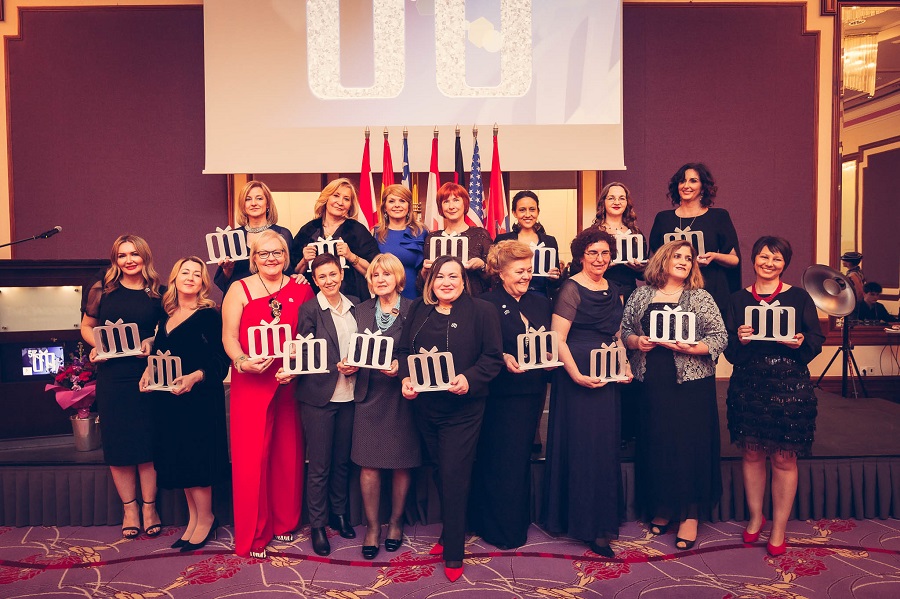
Media Contacts:
Ivana Perkovac
Profile Communications Corp.
This email address is being protected from spambots. You need JavaScript enabled to view it.
+385 (92) 1660-630
Caroline Spivak
Founder, Croatian Women’s Network™/Mreža Hrvatskih Žena
This email address is being protected from spambots. You need JavaScript enabled to view it.
+1 (416) 371-9740
Konzum Locking Prices of 100 Products Until End of 2022
September the 28th, 2022 - As of tomorrow, the large Croatian shopping chain, Konzum, is set to lock the prices of 100 of its products until the end of this year as inflation continues to bite.
As Poslovni Dnevnik writes, as of Thursday, September the 29th, Konzum will lock the maximum prices of 100 of its products from the basic consumer basket in order to help its loyal customers in the challenging current situation in which the prices of almost all foodstuffs are continuously increasing. These 100 products come from a whole range of categories that aren't covered by the decision of the Croatian Government on direct measures to control the prices of certain food products, which came at a cost of about 40 million kuna for Konzum.
These locked prices will not change until the end of this year, but they may still be further reduced. At the same time, customers using the Konzum MultiPlusCard card will be able to purchase up to 1,500 products at a lower price from September the 29th. MultiPlusCard prices will be lower by an average of 20 percent, which is the total value of the discount in the amount of 60 million kuna.
"We're the market leader and our every move is closely monitored. The situation we're in isn't easy for anyone, especially for our customers, and that's why we constantly, through numerous initiatives, try to make their everyday life as easy as possible.
This isn't only a question of our social responsibility, but also of our obligations and our influence as the largest retail chain in all of Croatia. I believe that even with this latest move, with which we'll lock in the maximum prices of another 100 products and provide additional benefits to MultiPlusCard users, our customers will recognise our efforts to reduce their household budget costs,'' said Zoran Mitreski, president of the Konzum Management Board.
The Konzum products which will have their prices locked are from the categories of fruit and vegetables, fresh meat and fish, dairy and bakery products, frozen products, products from the chain's delicatessen, canned foods, beverages, hygiene products for both children and adults, cleaning products and others, and more information available is on Konzum's website.
For more, make sure to check out our dedicated lifestyle section.
Fines For Failing to Separate Zagreb Waste as of 1 October Revealed
September the 28th, 2022 - The fine amounts for those who fail to separate their Zagreb waste as of the 1st of next month when the new system comes into force have now been revealed.
As Poslovni Dnevnik writes, as of October the 1st this year, a new system for the separation and disposal of Zagreb waste will finally be launched, which is a new way of municipal waste collection service spanning the area of the City of Zagreb.
The move has been made because of two main things, namely that the city's problematic waste containers will finally be under the control of their users and that a system will be introduced that encourages users to separate their waste, and then they'll only pay for the amount of mixed municipal waste that they actually produces, Davor Vic, the director of Zagreb's Cistoca, said for Dobro jutro, Hrvatska/ Good morning, Croatia.
"With the appearance of official, standardised bags in stores, counterfeit bags have now also appeared. Creating these was a criminal act," he emphasised, adding that the original bag has been protected. When asked how it will be possible to get the yellow bags intended for separating plastic and metal, Vic said that they will continue to be available as they have been until now. The distribution of new bags will start in October, and people can also come to Zagreb Holding on Vukovarska (Vukovar street), where they can pick up these bags for themselves, as well as buy the new standardised blue ones.
What will the fines for the improper disposal and separation of Zagreb waste under the new rules amount to?
When asked what the fines will be for people who don't behave in accordance with this new decision, Vic said that the fines will be 500 kuna for individuals and 1,000 kuna for legal entities, adding that the City of Zagreb has created a price list of services where the relationship between the minimum public service and the variable part is high. This relationship must encourage users to properly separate their waste.
"The more people separate their waste, the lower their bills will be. Today's system doesn't encourage this at all and we expect that we'll manage to reach the required percentages so that people don't need to pay fines,'' he pointed out in an interview with HRT, emphasising that discounts are being provided in the form of additional bags that won't come at a cost for people who need to dispose of diapers, as well as for households with small children up to three years old. More detailed information about this can be found on Zagreb Holding's website.
For more, make sure to check out our dedicated lifestyle section.
Air France Offering Flights from Zagreb Airport at Lower Prices
September the 28th, 2022 - The very well known air company Any France is launching flights from Zagreb Airport to various international destinations at slashed prices over the coming days.
As Poslovni Dnevnik writes, this year, the airline company Air France is offering a large number of destinations for travellers from Zagreb Airport at reduced prices in the company's brand new Le Rendez Vous campaign.
Ticket prices for long-haul destinations across the pond in the United States, Canada and the Caribbean have been reduced. Promotional destinations include major metropolises such as New York, Miami, Los Angeles, but also exotic destinations such as Mauritius, Cancun, Saint Martin and Bangkok.
If you have always wanted to visit a faraway or exotic destination or perhaps take advantage of a weekend tour of one of the European destinations in Air France's promotional campaign, it is now easy and much cheaper to do so from Zagreb Airport.
The Air France Le Rendez Vous promotional campaign is set to run from September the 27th to October the 6th, 2022, and tickets can be used until March the 31st, 2023. The offer is also valid for return tickets, and the price includes all taxes.
For more on where you travel from Zagreb Airport, make sure to check out our dedicated travel section.


